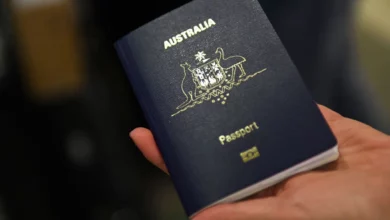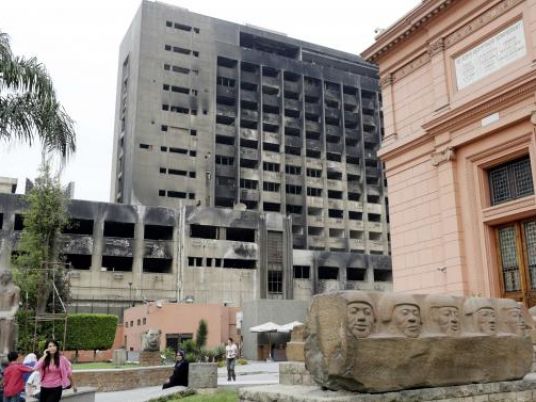Al-Masry Al-Youm published a poignant article written by Noha El-Hennawy two days ago. It was about 22-year-old Mariam Fekry, one of the victims of the bombing at Alexandria’s Church of the Two Saints, who had written on her Facebook page that 2010 had been one of the best years of her life.
For many of her fellow Coptic Christians, 2010 was an annus horribilis that started with a bloody murder on Christmas Day in Naga Hammadi, saw an ever-increasing number of confrontations over church constructions, alleged conversions, and offensive satellite channels, rose to a crescendo in the late summer with bishops and Islamist intellectuals trading venomous barbs, and seemed to be ending with a riot nearby Cairo (again, over church construction) that saw, for the first time, security forces using lethal force to put down Coptic anger.
Sadly, the Omraniya riot–which engendered the usual round of damage-control by church and state and many recriminations on either side of the sectarian divide–was not the final incident of a gloomy year. The Alexandria bombing, coming only half an hour into the new year, capped it all, taking Mariam Fekry’s life and those of 22 more. It also responded to the question that had been lurking below the surface concerning last year’s clashes and sectarian debates: Would the rising tensions eventually translate into an act of premeditated violence, carried out with the specific objective of terrifying Egypt’s Christian community and encouraging its long, slow flight to the West?
A second question has been played out in Egypt’s newspaper columns, tweets and blog posts: Will the country’s reaction be sufficient not only to apprehend the perpetrators of this crime and bring them to justice (assuming, as is probable, that this was the act of more than a lone suicide bomber), but also make a breakthrough in the underlying causes of the rise in sectarianism of the past decade?
If there is a silver living to this horrible act, it is that we’ve seen a genuine outpouring of grief and indignation about the bombing, and a real willingness to break with taboos and platitudes from many ordinary Egyptians. There appears to be a growing realization that even if there is often little to be done against terrorists’ determination to carry out acts of murders, there is much to be done to defuse the tension of an environment in which many Copts consider the bombing the latest indignity they must endure.
Out of this terrible tragedy, therefore, is an opportunity for political and civil society actors. It is no coincidence that many of the Muslims who joined with Copts in the last few days’ protests were doing so not merely in solidarity, but also against a generalized failure of the state to build a positive vision for what it means to be an Egyptian citizen in the twenty-first century.
The ruling National Democratic Party (NDP), the Muslim Brotherhood and other political movements have made much of the concept of citizenship in recent years. But will NDP leaders (since it is they who are in power) clarify what this means when, on the books, Christians, Muslims and Jews have different family law and differing regulations on the construction of their places of worship? This is a complicated issue, one where centuries of tradition and an uneasy hybrid of civil and religious law co-exist. But if citizenship is so central, do these issues not deserve a new look?
This should not be simply about granting Christians a long-denied privilege–to upgrade or build churches without special authorization from governors or the president. It should be about the comprehensive overhaul of the way places of worship are administered, and strict enforcement of the relevant building and urban planning codes–with no exceptions. It should be about finally allowing discussion, in parliament and in public, about a unified law for places of worship which was drafted in 2004 but has been held back ever since.
Eventually, it should also be about other issues, including ones that might irk conservatives in the church, or indeed Al-Azhar, about resolving the contradictions between religious law and equal rights for all citizens. Creating true civil marriage, and thus granting the right for Coptic divorcees to remarry (as an administrative court ruled in 2010) could be one step.
To seriously tackle some of the main societal issues that have plagued Egypt, from the sectarian divide to women’s rights and to the rights of Ba’hais and Shias not to suffer official discrimination, means taking the concept of citizenship to its logical consequences. It must be more than a slogan; ultimately it means cleaner elections and freer politics, equality under the law despite religious tradition, and an ability to enforce such laws even when they run against a particular sect’s traditions.
This brings us to the second major opportunity to come out of the Alexandria bombing. The attack is not simply the latest murder of Christians. It is also the return of a major terrorist attack to the Nile Valley, with more possibly to come, and potentially the revival of organized terrorist activity not seen since the 1990s, when Islamic Jihad still operated. It is the terrorist attack that has claimed the most victims in Egypt since the 1997 Luxor massacre, in which 58 tourists and four Egyptians died. It is a serious security failure, particularly as the authorities were aware of threats recently made against Egypt’s Copts.
This is why calls for the resignation of Minister of Interior Habib al-Adly are sound. After all, in 1997 President Hosni Mubarak immediately visited the site of the attack and, seeing poor security measures, summarily fired then-minister Hassan al-Alfi. Al-Adly has also his part of responsibility in the deteriorating sectarian environment, with civil society activists blaming his ministry for their heavy-handed micro-management of previous sectarian clashes, a worrying radicalization of police forces, and the more general problems of endemic torture.
If there was ever a time to send a strong signal that it will not be more of the usual kalam fadi (empty words), it is now.
Issandr El Amrani is a writer on Middle Eastern affairs. He blogs at www.arabist.net.




